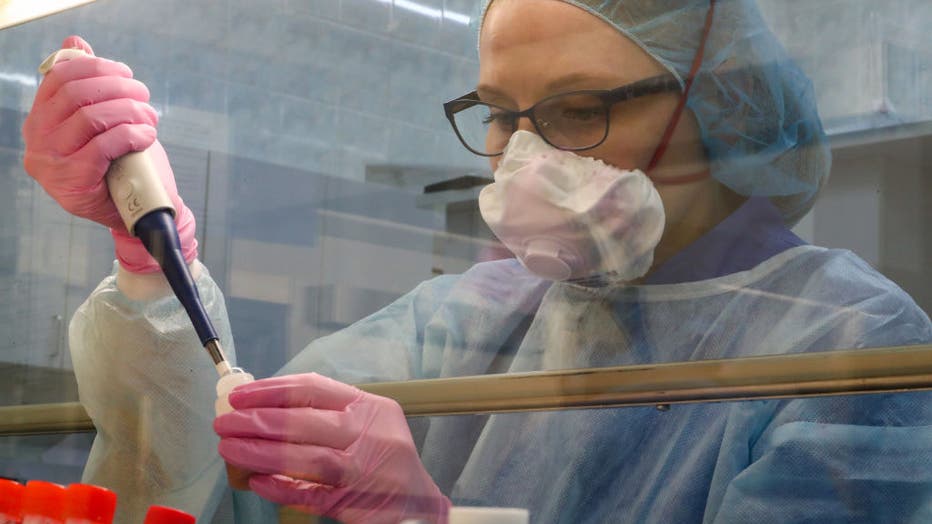Here is what COVID-19 antibody testing can and cannot tell us

What antibody testing can and cannot tell you
There are a lot of unknowns about what exactly the antibody test tells researchers about the coronavirus.
ATLANTA - Many of us are curious about whether we have been exposed to the novel coronavirus, and there is a way to find that out.
A COVID-19 antibody test, which typically involves either a finger prick or a blood draw, can detect proteins produced by our immune system when we fight off an infection.
What isn’t clear at this point is how much protection these antibodies provide against being reinfected by the virus down the road.
Johns Hopkins University School of Medicine and National Institute of Allergy and Infectious Diseases epidemiologist Dr. Oliver Laeyendecker has been studying viruses for 20 years.
Know how the COVID-19 outbreak is impacting Georgia

A healthcare worker performs laboratory tests detecting immunoglobulin class G (IgG) antibodies to SARS-CoV-2 virus in blood at the SklifLab laboratory of Sklifosovsky Research Institute of Emergency Care. (Sergei KarpukhinTASS via Getty Images)
Laeyendecker says there are still unanswered questions about what the presence of antibodies means in terms of immunity.
"We don't know how protective having antibodies to the virus is from getting reinfected by it," Laeyendecker says. "That is the trillion-dollar question."
There are other questions, too, like, how long will the viral antibodies last?
In a recent study, researchers at Kings College London analyzed the immune responses of 90 COVID-19 patients.
They found about 60% had "potent" antibody levels at the peak of their infection.
Three months later, the researchers found that only about 17% of those infected still had high levels of antibodies, while others had antibody levels that were undetectable.
Sign up for FOX 5 email alerts
Laeyendecker says there are other questions too about why some people produce a strong antibody response while others do not.
"One of the things, which is also very odd, that we're seeing, is, there are some people who don't seem to have antibody responses, that we know were infected," he said.
He points to research being done on convalescent plasma donors.
These are people with lab-confirmed viral infections who have recovered from the novel coronavirus and are willing to donate plasma to try to help hospitalized patients fight off the virus.
Laeyendecker says, if you look at their blood samples, about 5% of those confirmed cases have no antibodies, while about 30% have low levels of antibodies.
And, he says, it's not clear why.
"So there is still a lot of unknowns. There are a lot of unknowns with this infectious disease," Laeyendecker says.
Antibody testing is being used by public health researchers to determine how widespread the virus is in a particular community at a certain time.
Many physicians are also offering antibody testing for a fee.
While it can reveal past exposure to the virus, Laeyendecker cautions there is still a lot we do not know about how much lasting protection antibodies offer us.
Download the FOX 5 Atlanta app for breaking news and weather alerts.

